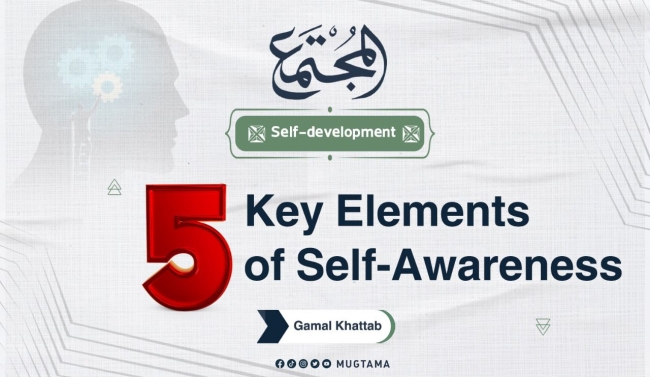Self-awareness is key to growth and development. This includes the ability to recognize and understand one’s own feelings, thoughts, beliefs, and actions. Self-knowledge can be broken down into five key areas that are essential to developing a deeper understanding of yourself and developing emotional intelligence.
1. Your emotional and cognitive skills
The first step to self-awareness is awareness of your feelings and thoughts. It means that you can identify and understand your emotions and accompanying thoughts. This includes recognizing when you are experiencing certain emotions and being able to accurately label them. Once you acknowledge your feelings and thoughts, you can begin to examine their causes and how they affect your actions and decisions.
2. Knowing who you are and what you believe.
The second element of self-discovery is knowing who you are and what you believe in. This requires a clear understanding of your values, principles and identity To understand your core beliefs and what is important to you a, it provides a solid foundation for making choices that harmonize with your own personality. Knowing who you are also helps create self-acceptance and authenticity in your interactions with others.
3. Emotional intelligence
Emotional intelligence is an important part of self-awareness. This includes the ability to effectively manage your emotions, empathize with others, navigate through life situations, and make good decisions based on emotional cues. Developing emotional intelligence involves aligning your own emotions with those of others as well, and using this knowledge to constructively guide your actions Emotional intelligence enables you to build strong relationships, resolve conflicts, and lead with compassion and integrity.
4. Be kind to yourself.
Self-compassion is an important part of self-awareness that includes being kind and understanding to yourself. It means treating yourself with the same compassion and care you would give to a friend in need. Being kind to yourself, accepting your strengths and weaknesses without judgment is a way to take care of yourself and develop a positive self-image By cultivating compassion for yourself, you can make yourself more resilient mouth, increase your self-confidence, and increase your overall well-being
5. A sense of your feelings and goals
The final step in self-awareness is to consider your feelings and goals. This includes taking time to pause and reflect on your feelings, thoughts, and actions, and consider how they align with your own values and purposes Reflecting on your experiences can be insightful on what motivates you, your strengths, areas for growth, and progress towards goals. By constantly reflecting on yourself, you can make deliberate choices that will help your personal and professional growth.
Self-awareness is a multi-faceted skill that includes emotional and cognitive awareness, self-awareness, emotional intelligence, self-compassion, and a sense of emotion and goals -It is a lifelong journey of discovery and development that can lead to greater satisfaction, resilience, and authenticity in all aspects of life.


